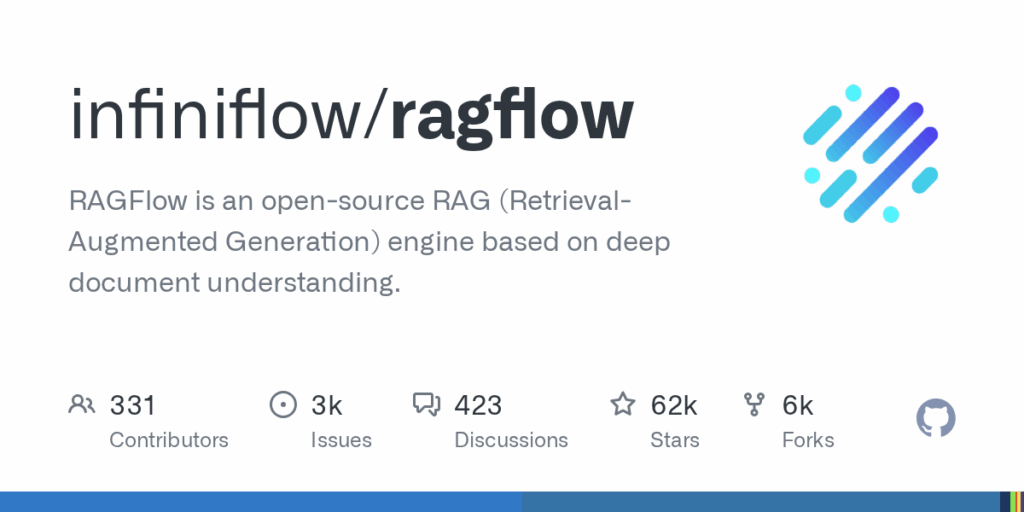ragflow
Basic Information
RAGFlow is an open-source RAG (Retrieval-Augmented Generation) engine focused on deep document understanding and building retrieval-augmented question-answering systems. The repository provides a deployable server composed of backend and frontend services, Docker images and compose files, configuration templates, and developer instructions to run locally or in containers. It integrates LLMs and embedding models, supports document layout analysis via DeepDoc, and offers a web demo and APIs for business integration. The project targets teams that need truthful, citation-backed answers from complex formatted data and large documents, and it includes tooling for ingestion, chunking, vector search (Elasticsearch or Infinity), and optional on-prem embedding models. The README documents prerequisites, starting the server, configuration options, and how to build slim or full Docker images.








